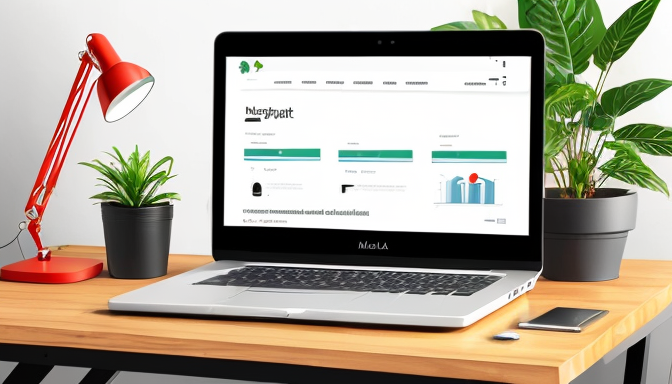When it comes to securing your Joomla site, the process shouldn’t feel like climbing a mountain. In fact, it can be as easy as pie! By following a few best practices, you can effortlessly safeguard your site without getting tangled in technical jargon. First off, let’s talk about updates. Keeping your Joomla core, extensions, and templates up to date is like giving your site a fresh coat of armor. Regular updates patch vulnerabilities and protect against potential threats. Are you doing this consistently? If not, it’s time to make it a habit!
Next up, let’s not forget about backups. Imagine your site crashing and losing all your hard work. Terrifying, right? Regular backups are your safety net. Use extensions like Akeeba Backup to automate this process, so you can rest easy knowing your data is safe and sound. Additionally, consider using a reliable hosting provider that offers security features like firewalls and malware scanning.
Lastly, be aware of common vulnerabilities that can plague Joomla sites, such as SQL injection and cross-site scripting (XSS). Educating yourself on these threats is key. Think of it as being the guardian of your castle; you need to know where the weak spots are to defend against invaders. By implementing these simple yet effective strategies, you can keep your Joomla site secure without breaking a sweat!
Understanding Joomla Security Risks
When it comes to your Joomla site, understanding security risks is like knowing the terrain before embarking on a hike. Just as you wouldn’t wander into the wilderness without a map, you shouldn’t navigate the online world without being aware of potential threats. Joomla, while robust and user-friendly, is not immune to vulnerabilities. Hackers are constantly on the lookout for weaknesses to exploit, and if you’re not prepared, your site could become an easy target.
Common security threats include SQL injections, cross-site scripting (XSS), and brute force attacks. These attacks can lead to unauthorized access, data breaches, and even complete site takedowns. For instance, an SQL injection might allow a hacker to manipulate your database, while an XSS attack could enable them to inject malicious scripts into your pages. The more you know about these risks, the better equipped you are to defend against them.
Moreover, keeping your Joomla installation and extensions updated is crucial. Outdated software is like leaving your front door wide open; it invites trouble. Regular updates not only patch known vulnerabilities but also enhance your site’s overall performance. Don’t forget to back up your site regularly, too! Think of it as an insurance policy; in case something goes awry, you’ll have a safety net to fall back on.
In summary, being aware of these security risks and implementing best practices can significantly reduce the chances of a security breach. So, stay informed, stay updated, and keep your Joomla site secure!

Implementing Essential Security Measures
When it comes to securing your Joomla site, think of it like locking the doors of your house. You wouldn’t leave your front door wide open, right? The same goes for your website. One of the best practices is to regularly manage updates. Joomla frequently releases updates that patch vulnerabilities. By keeping your Joomla version, extensions, and templates up to date, you significantly reduce the risk of being targeted by cybercriminals.
Another essential measure is to implement strong passwords. Imagine trying to break into a vault with a flimsy lock—it’s just too easy. Use complex passwords that include a mix of letters, numbers, and symbols. Additionally, consider enabling two-factor authentication (2FA) for an extra layer of security. This way, even if someone manages to guess your password, they’ll still need that second form of verification to gain access.
Backups are your safety net. Think of them as your insurance policy. Regularly backing up your site ensures that if anything goes wrong—be it a hack or a simple error—you can restore your site to its former glory without losing valuable data. Use reliable backup tools and store your backups in multiple locations, such as cloud storage and external drives.
Lastly, be mindful of the extensions you install. Not all plugins are created equal, and some may introduce vulnerabilities. Stick to reputable sources and always check reviews before adding new functionality to your site. By following these essential security measures, you can keep your Joomla site safe without breaking a sweat!
Frequently Asked Questions
- What are the common security risks for Joomla sites?
Common security risks include SQL injection, cross-site scripting (XSS), and unauthorized access. Being aware of these threats helps you take proactive measures to safeguard your site.
- How can I enhance my Joomla site’s security?
You can enhance security by regularly updating Joomla and its extensions, using strong passwords, and implementing security plugins. Think of it as locking your doors and windows to keep intruders out!
- Is it necessary to back up my Joomla site?
Absolutely! Regular backups are like insurance for your website. If anything goes wrong, you can restore it quickly and easily, ensuring minimal downtime.
- What are the best security plugins for Joomla?
Some popular security plugins include Akeeba Backup, Admin Tools, and RSFirewall. These tools act like a security team, continuously monitoring and protecting your site.
- How often should I update my Joomla site?
It’s best to update your Joomla site and its extensions as soon as updates are available. Think of it as getting regular check-ups for your health—prevention is key!